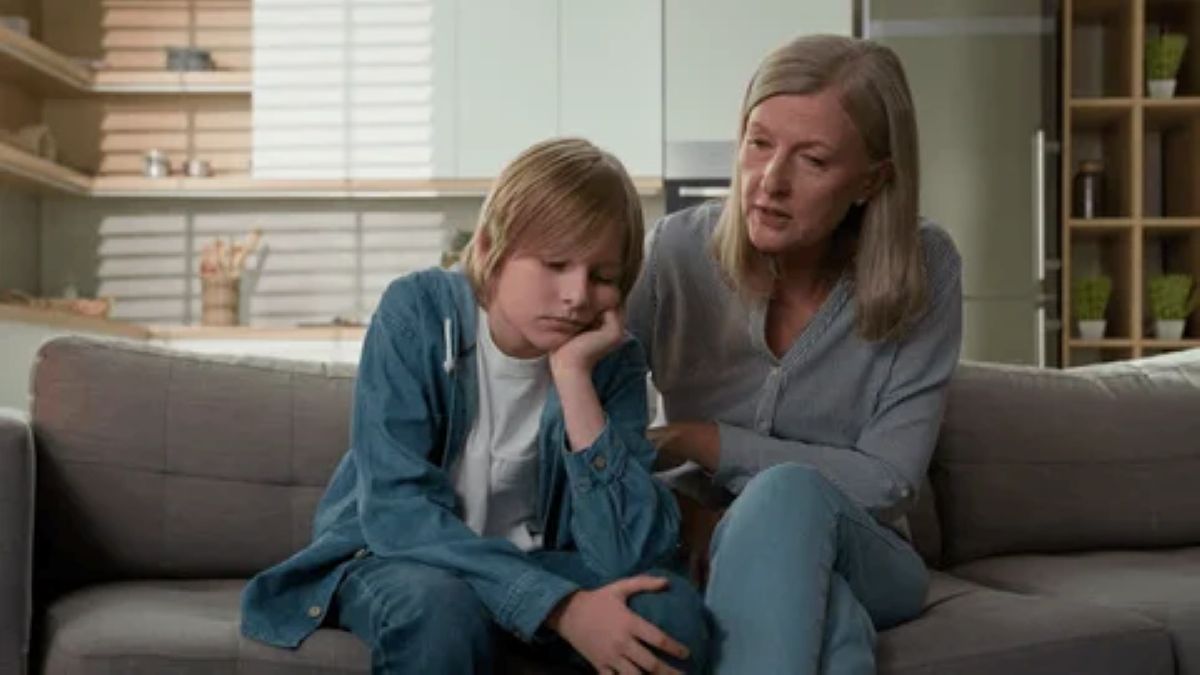In the life of a child, we share thousands of words with them—every single day, or at least every week. Most of the time, those words feel ordinary, part of everyday chatter.
But sometimes, without even realizing it, we say little phrases that can leave a bigger mark than we intend. Child psychologists tell us that certain “innocent” sayings can actually hurt a child’s confidence or sense of security.
As parents and grandparents, our words carry weight. Some familiar sayings might actually chip away at a child’s confidence or wellbeing without us ever meaning to. That’s why it’s worth pausing to notice the little things we say—and learning gentler, more encouraging ways to speak into their lives.
1. “Perfect.”
We often say “perfect” when something goes just right. But to a child, hearing “perfect” can make it feel like that’s the standard they always need to reach. Instead, try saying, “That works, thank you,” or “Job well done.” These words encourage without the pressure of perfection.
2. “It’s not a big deal.”
When a child or teen is upset, it may be tempting to say, “It’s not a big deal” or “You’ll get over it.” But to them, it is a big deal. Kids don’t yet have the years of wisdom adults do. A better way is to listen and say something like, “I hear you,” or “That sounds tough.” When children feel understood, it helps them calm down and move forward.
3. “Here’s what you should do.”
When we tell kids what they should do, it can sometimes make them feel like they’ve already messed up. Words like “should” can also take away their confidence and independence. Instead, try saying, “I have some ideas if you’d like to hear them.” This gives children the choice to listen when they’re ready, while reminding them you’re always there with support.
Another gentle way is to ask, “I’m curious what you think about this,” or even sum up the situation in a way that helps them come to their own solution. This builds trust and shows that you value their voice.
4. “How was your day?”
Asking “How was your day?” often gets a quick “fine” or “okay”—and that’s about it. After all, kids have just come home from a long, busy day, and it can feel like too much work to give a full answer.
Instead, try a warmer welcome: “I’m so glad you’re home,” or “It makes me happy to see your smile.” You can also make it personal by noticing something specific, like, “I hope your test went well—you studied so hard,” or “The sunshine was beautiful today, I hope recess was fun.” These little touches help them feel seen, cared for, and ready to open up on their own terms.
5. “What’s your plan for college?”
It’s easy to ask kids about college, but that question can feel heavy—especially if they don’t have an answer yet. Not every young person is ready to go to college right after high school, and that’s okay. Some need a little more time to figure out what excites them. Others may shine in trades, jobs, or creative paths outside of college.
A gentler way to ask is, “What are your plans after you graduate?” This opens the door for them to share their dreams—whatever those may be—and reminds them that every path forward is worth celebrating.
A Gentle Reminder
Parents and grandparents aren’t perfect—and that’s more than okay. We all say things at times we wish we hadn’t. What truly matters is that we can always go back, try again, and say it in a kinder way.
Raising children isn’t about getting every single moment right. It’s about showing up with love, patience, and care—over and over again. Thankfully, we’ll have many chances to do just that.
Want more encouragement? Take a look at 6 Phrases a Child Psychologist Is Begging Grandparents to Start Saying. It’s a heartwarming guide to building up your grandkids with words that truly matter.
Love Being a Grandma?

Join 12,570+ grandmas who wake up to a cheerful, uplifting email made just for you. It’s full of heart, sprinkled with fun, and always free. Start your mornings with a smile—sign up below! ❤️


Thank you so much for ALL of this educational information!
You are most welcome, Theresa! God bless you. ❤️